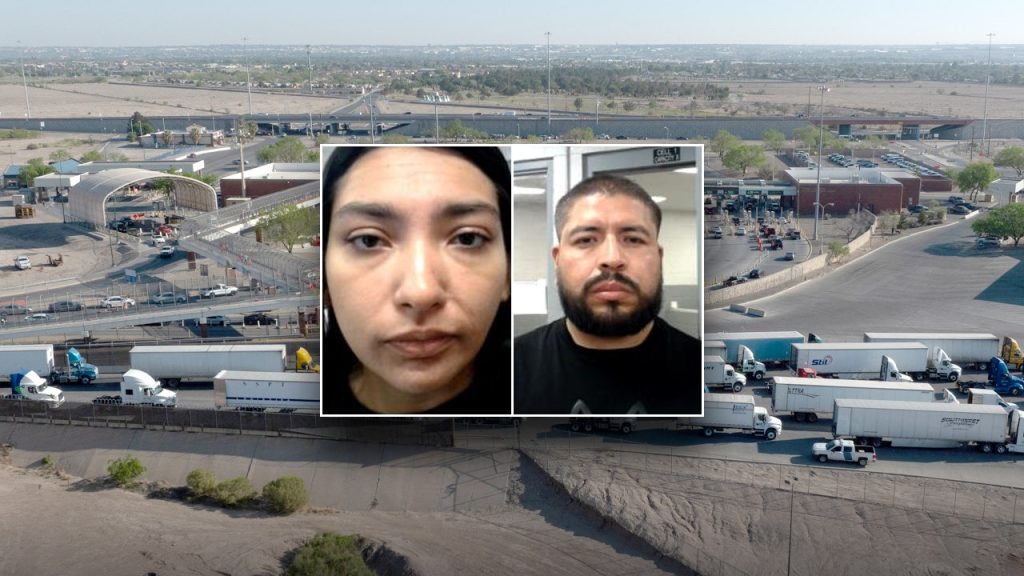Four Face Charges in Disturbing Child-Smuggling Case from Mexico to U.S.
In a harrowing case that highlights the dangers faced by migrant children, four individuals have been charged with smuggling unaccompanied minors from Juárez, Mexico, into the United States through El Paso, Texas. The accused – Susana Guadian and Daniel Guadian (Mexican nationals), their daughter Dianne Guadian (a U.S. citizen), and Manuel Valenzuela (a legal U.S. resident in El Paso) – allegedly transported children between ages five and thirteen across the border under deeply troubling circumstances. According to Jason Stevens, Special Agent in Charge of Homeland Security Investigations in El Paso, the smugglers posed as the children’s parents at Border Patrol checkpoints, using false documentation and even sedating the young victims with marijuana-laced gummies to ensure they remained quiet and compliant during the dangerous journey.
The criminal complaint details a smuggling operation that ran from May to October 2024, revealing a systematic approach to trafficking vulnerable children. Text messages recovered from the suspects’ phones show the casual nature with which they discussed these children as mere commodities: “Young lady, are you working today? I have a boy 7 and 8. They are small,” read one message, while another stated, “Also Fanny, I have two little girls ages 4 and 5.” Investigators also discovered “proof-of-life” pictures of some children on the suspects’ devices, suggesting a disturbingly organized criminal enterprise. In at least one documented case, a child required hospitalization after consuming the drugged candies provided by the smugglers to keep them sedated and prevent them from contradicting the smugglers’ stories during border crossings.
The operation’s timing reveals calculated planning to minimize detection. “They would normally bring them in overnight between 10 a.m. and 4 or 5 a.m., when the children would be sleeping anyway,” Stevens explained. “They use that to ensure that they stay sedated, and that way they’re less likely to answer questions or provide anything that’s going to be inconsistent or contrary to what the smuggler’s saying.” This deliberate sedation of minors represents a particularly disturbing element of the case, with authorities noting they’ve witnessed a range of substances being used on children, from Benadryl to marijuana-infused candies. The four individuals now face serious federal charges including conspiracy to transport aliens and bringing aliens to the U.S. for financial gain, with authorities working to extradite the Mexican nationals to face justice in the United States.
What makes this case especially heartbreaking is the misplaced trust of parents who believed they were securing a better future for their children. These parents entrusted their most precious loved ones to smugglers who viewed the children merely as “currency,” in Stevens’ words. The criminal networks exploit desperate families’ hopes while exposing children to extreme dangers, including being held in squalid stash houses or becoming victims of extortion schemes. “These children are nothing more than currency to the criminals,” Stevens emphasized, highlighting the callous disregard for human life that characterizes these smuggling operations. The investigation is part of broader efforts to address the crisis of unaccompanied minors at the southern border, which has seen tens of thousands of children disappear into the system in recent years.
The case emerges amid ongoing challenges in tracking and protecting unaccompanied minors who cross the border. Earlier this month, Fox News reported on efforts within the Office of Refugee Resettlement to locate children who vanished during processing under the previous administration. The Trump administration had created a specialized team for this purpose, underscoring the longstanding and complex nature of the problem. The current case exemplifies why such efforts are crucial – without proper oversight and legal pathways, vulnerable children remain at the mercy of smuggling networks that view them as mere commodities rather than human beings deserving protection and care.
Law enforcement officials emphasize that while they understand the desire to seek a better life in the United States, resorting to smuggling organizations puts migrants, especially children, at tremendous risk. “While we understand people wanting to come to the United States for a better way of life, there is a legal way to do it,” Stevens noted. “That is the way obviously that we suggest that they do that and that money be invested in that process, because when they go with a smuggling organization, they can’t control any of the elements or the people that are smuggling them.” The case serves as a stark reminder of the human costs associated with irregular migration, particularly for the most vulnerable travelers – children who have no say in these perilous journeys and who bear the physical and psychological scars of trafficking.


